The age old problem of document digitization in trade has probably been around since goods were traded using stone tablets in the Mesopotamian era. So who’s making a dent using blockchain / distributed ledger technology? From the updated WTO / TFG periodic table of projects in trade, we reveal 12 projects tackling this head on.
So, here goes…!
1|CamelOne [VCargoCloud]

CamelONE is a platform that integrates and connects all stakeholders in the supply chain. The initiative, spearheaded by Singapore-based vCargoCloud, seeks to digitalize the entire end-to-end process for trade and supply chain by creating an ecosystem for interaction between government agencies, traders, freight forwarders, warehouses, airlines, shipping lines, banks, financial institutions, and cargo insurance companies. At its core, CamelONE consists of a trade facilitation platform, a cargo community platform, and industry-specific eCommerce verticals.
The platform is currently integrated to Singapore Customs and Singapore International Chamber of Commerce as well as a collection of logistics companies, banks, importers, and exporters. Generating revenue on a transaction fee model, CamelOne has plans to soon launch services for customs declaration, licenses, permits, and commercial and shipping documents.
2|CargoDOCS [essDOCS]
CargoDocs uses an immutable ledger based on Amazon Web Services Quantum Ledger Database (AWS QLDB). QLDB provides a transparent, immutable, and cryptographically verifiable transaction log to CargoDocs. It tracks each and every application data change relating to final documents and title and maintains a complete and verifiable history of changes over time. While not strictly speaking a blockchain or DLT, QLDB does act as a ledger database purpose-built for customers who need to maintain a complete and verifiable history of data changes in an application that they own.
The CargoDocs solution has been integrated across several key DLT partner solutions, particularly to provide critical electronic bill of lading capabilities for banks and corporates. Partner integrations include Contour’s blockchain letter of credit platform, MineHub, VAKT, Finacle Trade Connect, and include blockchains based on Ethereum/Quorum, IBM Hyperledger Fabric, and R3 Corda.
While CargoDOCS does not currently support applications for KYC or AML, they are exploring options of tying the solution to partners who would be offering DLT for KYC and AML.
CargoDocs charges transaction fees for the use of its solutions either annually, quarterly or monthly. One-off implementation fees may also apply, depending on customization required and scope
3|CargoX
CargoX is an independent supplier of an on-chain bill of lading (BL) powered by the Ethereum network. They have created a Blockchain Document Transaction System (BDTS) open-source protocol to tokenize, encrypt, and transfer the BL along with any additional documents required for trade processes. The system API is enabled for integrations and is interoperable with other blockchains, meaning it can be integrated into other ERP systems to supplement their functionality.
The globally focused organization generates revenue through a transaction business model for MSME participants and a subscription-based model for corporates. They plan to roll out a BDTS for industry verticals like production or energy trading in the near future and have their sights set on a possible KYC solution by 2021.
4|dltledgers
Dltledgers is a trade execution platform that enables customers to digitalize their trade execution processes by digitizing contracts and documents. The platform is available to anyone buying or selling physical goods cross-border such as commodity traders and large manufacturers as well as to trade finance providers like banks. Banks are generally either direct customers, participating in or running their own networks by subscribing to a node, or they participate in another customers’ trades as trade finance partners, in which case they would only have restricted platform access.
Currently the platform intends to provide services to digitize cross border trade processes, provenance and sustainability, accounts payable financing, accounts receivable financing, distributor network digitalization, supplier financing network, and supply chain visibility.
As direct competitors with komgo, we.trade and Marco Polo, the permissioned Hyperledger Fabric based network will operate by charging subscription fees as well as transaction fees. Its current primary realm of operation is based in Asia Pacific and the Middle East, but also includes active trade flows between 28 countries on 4 continents.
5|eCOM Asia Ltd
eCOM Asia is a B2B data integration company providing digital transformation and data integration across all supply chain participants. eCOM’s solutions enable trade and finance facilitation across the entire supply chain. The company generates revenues through a combination of subscription fees, read-write volume charges, and financing loan amount commissions.
Its DLT-based eCOM Registry™ solution provides a Trusted Data Network for the secure sharing and exchange of trusted data, whilst maintaining ownership and control, and enabling eKYC in financial service initiatives. The eCOM Registry™ solution is being used for: cross border trade connectivity between Singapore and China; a trading and finance platform for a large China Food Importer; and an SME trade finance solution for the Hong Kong Port community.
The cross-border trade connectivity between Singapore and China allows for the bi-directional exchange of customs import and export declarations. Moving into the second phase of this project, the aim is to implement trusted data through their eCOM Registry™ solution for customs declarations and supporting trade documents like the BL or certificate of origin.
The trading and finance platform for one of China’s largest food importers, allows them to use their own liquidity to finance China distributors using preferential financing rates outside of China. They offer 90% funding from order to shipment to China, with balance paid by distributor when they collect the product. eCOMs DLT solution provides the tracking, visibility and trust across the export-import trade documents so they can manage the financing process and risk.
Hong Kong Port community SME Trade Finance solution starts with Trusted Trade data enablement. Import and Export trade data has been integrated to the eCOM Registry™ from over 3,100 organisations who have shared over 320,000 documents. These trusted trade documents can be shared to Banks / FSIs to facilitate SME Trade finance. The solution is targeting the Hong Kong Port community US$40B SME trade finance gap.
6|edoxOnline
edoxOnline is a post-trade execution platform for the digitization of international trade documents that links and interconnects all the different parties of the International Trade transaction to streamline the documents issuance process, mitigating errors and speeding up drafting and final documents issuance.
Its ecosystem includes worldwide Exporters, Importers and Trading companies from Multinational and MSMEs; Chambers; Official authorities; Vessel Owners; Carriers; Maritime agents; Custom agents; Forwarders; Supervision and Fumigation Companies; as well as different types of vendors. The company is currently working on the connectivity with the International Trade finance field (Banks and Capital funds).
Based on the Ethereum network, the permissionless platform issues and handles electronic bills of lading (eBLs), among other documents as needed, such as origin certificates (eOC), adding an extra layer of security and enabling real-time collaboration.
The platform is already interfaced with different systems, including official authorities in USA, Argentina, Brazil, and is currently open to be interconnected as needed.
edoxOnline generates revenue from subscription fees charged for the use of its SaaS platform.
7|Enigio

The Enigio product is a transferable digital original document, trace:original. trace:original is built using DLT technology as one of several components, where the DLT only serves as a notary service for issued documents. This allows Enigio to provide verification of original documents without storing any business or personal data.
Enigio is not a consortium but rather helps customers create freely transferable and negotiable digital original documents. To date, the major participant is the ITFA Fintech Committee which includes Crown Agents Bank, London Forfaiting, Lloyds Bank, Sumitomo Mitsui Banking Corporation, Finastra, China Systems, Sullivan & Worcester, and Trade Advisory Network.
Having developed the proprietary technology in-house, Enigio’s trade:original is profitable by charging a monthly subscription fee for users. Once digital original documents have been issued, the documents are freely transferable to and between anyone without fees or agreements.
8|Galileo [Bolero]

Bolero is a non-DLT, messaging-based platform which allows for secure communication between various trade parties like shipping carriers, corporate clients, and banks. Every party on the Bolero network can send and receive trade transactions using the Bolero messaging protocols. The company has also been fundamental in spearheading the development and striving for the adoption of electronic bills of lading (eBL). Their technology ensures that eBLs are created and transferred between various parties in a trade transaction and their title registry modules maintain eBL title throughout the transaction lifecycle.
While Bolero’s original founding in 1998 long pre-dates the era of DLT, the firm has recognized the growing importance of the new technology in the space and has been working heavily with it. Bolero’s technology is blockchain agnostic and their aim is to interoperate between different DLT platforms as well as non-DLT platforms allowing access to Bolero services through open APIs.
In November 2018, following a series of pilots to integrate Bolero’s eBL service with the trade finance consortium Contour (then known as Voltron), the first successful integration was achieved by participants HSBC and ING. Bolero seeks to develop its technology to be able to operate with any other trade digitization initiative, regardless of its underlying technology.
9|TradeWindow
Established in December 2018, TradeWindow is the developer of Cube, a digital platform for trade administration that provides a ‘single source of truth’ from which exporters, importers and freight forwarders can share supply chain data and shipping documentation with permissioned partners. Cube’s capabilities cover export documentation, compliance, risk management, track and trace and trade finance. Underpinned by DLT, Cube provides an immutable audit trail which enables high trust B2B and B2G data exchange.
Operating in the Asia-Pacific region, the current business model generates revenue through a combination of monthly subscription and transactional fees. TradeWindow has amassed 770 customers including many of Australasia’s leading brands in the primary and manufacturing sectors.
With a view to facilitating end-to-end digital trade, Cube is built according to API first architecture, enabling interoperability with regional and sector specific applications and platforms starting with Pan Asian E-commerce Alliance (PAA), SWIFT and CGI. Positioned as a neutral platform, TradeWindow has attracted an ecosystem of supply chain participants including ASB Bank, Commonwealth Bank of Australia, Western Union, Mastercard, Swire Shipping, Trade-Van (Taiwan), Ports of Auckland and TradeTrust (IMDA).
TradeWindow’s new product releases include a trade finance market place and an electronic Bill-of-Lading (eBL). TradeWindow’s eBL solution records a tokenised physical Bill-of-Lading document and generate a digital twin which can be issued, transferred and surrendered.
10|Trusple
Trusple is an international trade and financial service platform powered by AntChain, Ant’s blockchain-based technology solutions, designed to build trust and support SME’s in cross-border trade. Based on the concept of “Trust Made Simple,” Trusple works by generating a smart contract once a buyer and seller create a purchase order on the platform. The order and related shipping and payment terms are also written into the contract. Payments are automatically triggered and processed when all necessary, relevant, and procedural conditions are met. This automated process digitalizes the traditionally manual and paper-based international trade value chain, and at the same time, ensures information is tamper-proof.
Further, successful transactions on Trusple’s permissioned network enable SMEs to build their creditworthiness on AntChain, making it easier for them to obtain financing services from financial institutions.
Launched at the end of September by Ant Group and built on their proprietary DLT AntChain, Trusple has partnered with various leading international financial institutions. The first group of partners are BNP Paribas, Citibank, DBS Bank, Deutsche Bank, and Standard Chartered Bank.
11|VAKT
VAKT, powered by Quorum, is a post-trade platform designed for the commodity industry currently live in oil markets. As a post-trade platform, VAKT allows the various parties – traders, terminals, inspection companies, brokers, port agents, and trade finance banks to exchange data and documents securely and seamlessly, directly from and to their internal systems. The VAKT platform manages physical transactions covering deal recaps, trade confirmations, logistics around delivery, settlements, and invoicing, eliminating reconciliation and paper-based processes. Built using blockchain technology, it provides a single source of truth for buyers, sellers, and ecosystem participants that are safeguarded with an immutable, distributed audit trail.
The formation of VAKT in December 2017 constitutes a collaboration between market participants: BP, Equinor, Gunvor, Koch Supply & Trading, Mercuria and Shell; and three banks: ABN Amro, ING and Société Générale. Over the course of 2018 and 2019, VAKT welcomed Chevron, Reliance Industries, Total and Saudi Aramco Energy Ventures as shareholders with the same vision of solving industry-wide problems in post-trade processing for commodities.
12|Wave BL
Wave is a secure all-in-one communication protocol designed to meet the special needs of the B2B community. The B2B distributed ledger application provides users with the ability to issue, exchange, and digitally sign documents, including electronic bills of lading, in an encrypted, direct, peer-to-peer transmission. The Wave blockchain ledger allows for the managing the chain of possession and chain of title associated with these documents, without the need for a central registry and without the service provider becoming a principal to any of the transactions conducted by the Users.
Since its founding in 2015, Wave completed the world’s first live pilot using the application in 2016 together with Barclays Bank, Ornua, and more. Since then, Wave managed to complete the first pilot in the maritime shipping industry together with the Israeli shipping company ZIM and Hong Kong, China-based logistics firm Sparx Logistics. Today, the solution is rolled out with Zim shipping Line and has completed further pilots with 67 banks, 5 Carriers, and hundreds of corporates. Wave’s current revenue model varies between subscription fees and pay-as-you-go services.
 Australia
Australia Hong Kong
Hong Kong Japan
Japan Singapore
Singapore United Arab Emirates
United Arab Emirates United States
United States France
France Germany
Germany Ireland
Ireland Netherlands
Netherlands United Kingdom
United Kingdom
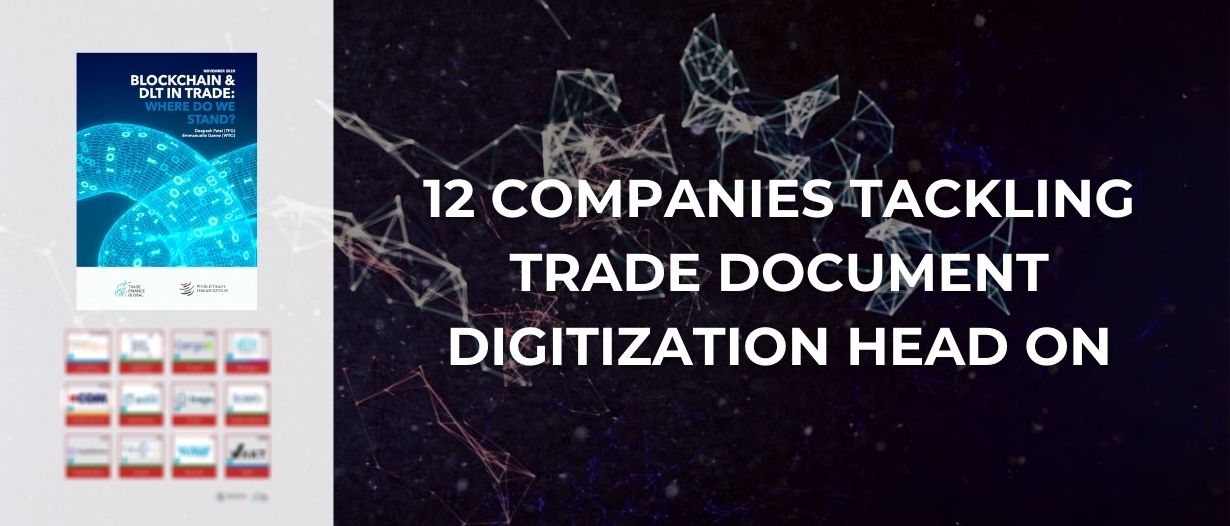










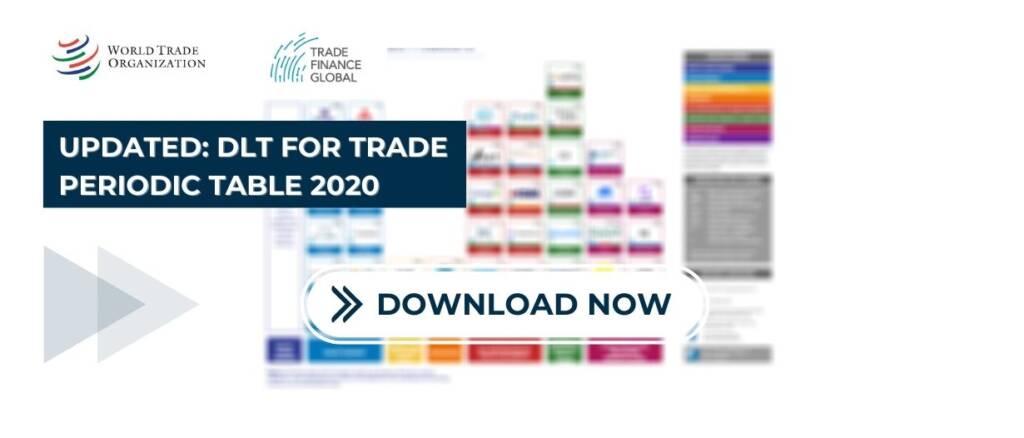



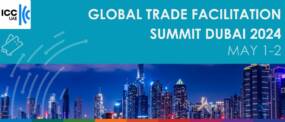
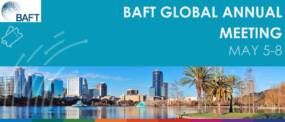

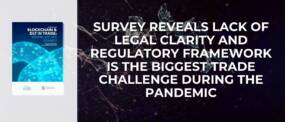
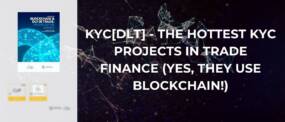
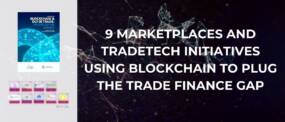
Comments are closed.